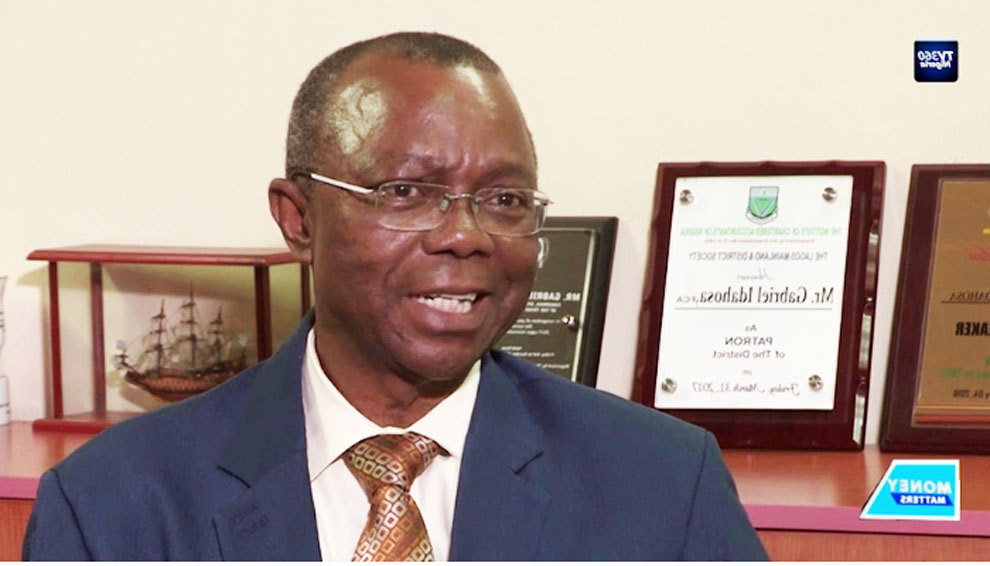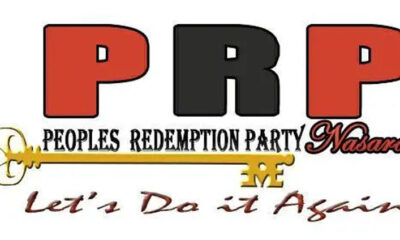Business
CBN bans Opay, Palmpay, Moniepoint, Kuda from opening new accounts

CBN bans Opay, Palmpay, Moniepoint, Kuda from opening new accounts
Some bank customers have expressed panic as the Central Bank of Nigeria bans mobile money operators including fintech firms from onboarding new customers.
However, the Bank Customers Association of Nigeria backed the CBN directive.
The new directive will affect fintech companies such as OPay, Palmpay, Kuda Bank, and Moniepoint, from opening new accounts until further notice.
Reliable sources from three major fintechs who requested not to be mentioned as they were not permitted to speak, confirmed the development to The PUNCH on Monday.
The CBN’s move was linked to an ongoing audit of the Know-Your-Customer process of the fintechs, which have been under scrutiny in recent months over concerns around money laundering and terrorism financing.
It was gathered that the CBN had summoned some of the heads of fintechs to Abuja to discuss issues around KYC last week.
The CBN has not yet publicly commented on the directive to the fintech firms. The PUNCH’s attempts to reach the apex bank for comment were unsuccessful.
Several calls made to the telephone line of the CBN spokesperson, Hakama Ali Sidi, were not responded to as of the time of filing this report.
Also, the directive coincided with the court order that the Economic and Financial Crimes Commission (EFCC) obtained to freeze at least 1,146 bank accounts owned by various individuals and companies allegedly involved in illegal foreign exchange transactions.
The 85-page court order (document), which listed the bank account details suspected to be involved in illicit activities, was obtained by The PUNCH on Monday.
Justice Emeka Nwite, in a ruling on the ex-parte motion, moved by counsel for the anti-graft agency, Ekele Iheanacho, also granted the commission’s application to conclude the investigation within 90 days.
READ ALSO:
- After one-day gain, naira crashes again to N1,340/$ in parallel market
- Ex-Kwara finance commissioner arraigned over alleged N1. 22bn fraud
- Power sector will be grounded without tariff increase – Minister
Part of the court document read, “That the applicant’s (EFCC) application is hereby granted as prayed.
“That an order of this honorable court is hereby made freezing the bank accounts stated in the schedule below, which accounts are owned by various individuals who are currently being investigated in a case involving the offenses of unauthorised dealing in foreign exchange, money laundering, and terrorism financing, to the extent that the investigation will be for a period of 90 (ninety) days.”
The EFCC, in the motion marked FHC/ABJ/CS/543/2024 dated and filed April 24 by Iheanacho, was heard by the judge the same day in the interest of national interest. “The motion was brought pursuant to Section 44(2) and (K) of the 1999 Constitution; Section 34 of the EFCC Establishment Act 2004; Section 7(8) of the Money Laundering Prevention and Prohibition Act, 2022; and under the inherent jurisdiction of the court.”
The President of the Bank Customers Association of Nigeria, Uju Ogubunka, backed the CBN’s move to suspend new account opening on the affected platforms.
He told The PUNCH that the strict regulations that govern deposit money banks must apply to fintechs, and microfinance banks in order to ensure the integrity of the financial institutions.
He said, “Anything that can disrupt the system should not be permitted. If the platforms are being used for things that are against the regulations, I think the CBN decision is OK. I don’t see anything wrong with that. It behoves on the companies now to get their KYC right.
“Let them do what they are supposed to do. KYC applies to banks and other financial institutions that deposit money. It should also apply to them so that the regulators can understand what is going on and hold them accountable.”
On the other hand, Emmanuel Odunsi on X (formerly Twitter) welcomed the move, citing the need for better KYC processes to prevent scams and fraudulent activities.
“Their KYC isn’t that great. Lots of scammers are using their apps to defraud people.
“Most of the accounts were created by mining phone numbers, with subscribers’ permission. Almost every phone number has been linked to an account,” Odunsi said.
CBN bans Opay, Palmpay, Moniepoint, Kuda from opening new accounts
Auto
Cash rain at Toyota Nigeria Awards as Nestle, Zenith, Roxcon win big (+ photos)

Cash rain at Toyota Nigeria Awards as Nestle, Zenith, Roxcon win big (+photos)
Toyota (Nigeria) Limited (TNL) on Friday, May 17, 2024, named Nestle Nigeria Plc as winner of its prestigious Evergreen Customer Award for the Year (2023).
The company emerged winner among the teeming Toyota customers, having purchased the highest cumulative number of new Toyota vehicles consistently within a five-year period (2019 – 2023) from the TNL accredited dealers.
As the Evergreen customer, Nestle was rewarded with office equipment worth about N10 million, which was announced by the Chairman of Toyota Nigeria Limited, Chief Michael Ade.Ojo, at a well attended ceremony held in Lagos to celebrate the customers.
Nestle also won the Best Customer of the Year award, being the customer with the highest purchase of Toyota vehicles from the TNL dealers in 2023. It also went home with a cash award of N5 million.
Roxcon Nigeria Limited and Zenith International Bank received N3 million and N2 million respectively for emerging first runner-up and second runner-up in the 2023 TNL customers purchase assessment.

Ade.Ojo congratulated the winners and thanked them for their loyalty to the Toyota brand and Toyota (Nigeria) Limited’s superior quality products and after-sale support.


Even as he urged others to take a cue from the winners, he announced that next year’s winner of the biggest award, the Evergreen, would go home with a brand new Toyota vehicle.
The Managing Director of Toyota (Nigeria) Limited, Mr. Kunle Ade-Ojo, in his address at the event, spoke on the big idea behind the annual awards.
He said, “At Toyota (Nigeria) Limited, the philosophy of ‘Customer First’ remains the focal point of all our activities. Therefore, at every opportunity, we like to recognize and acknowledge our customers’ overwhelming love and support for us, which has been our driving force over the years.

“Your unwavering patronage of the Toyota brand and unshaken loyalty to it have been awesome.”
The MD said that the company had consistently held the awards every year since the inaugural edition in 2005 but only suspended it during the COVID period.
“We thank you for staying with us throughout the difficulties brought about by the pandemic,” he added.
Notwithstanding the economic challenges confronting business organisations in Nigeria, Ade-Ojo expressed the determination of the TNL team “to maintain our culture of providing superior quality products and services to our esteemed customers.
“We will continue to avail you of models that meet your specific needs supported by robust after-sale services.”

He commended the vision of the company’s Chairman, Chief M. Ade.Ojo, affectionately called Mr. Toyota, whose foresight and tenacity, he said, had changed the face of the automobile industry in Nigeria.
Business
Over 60% firms, individuals not paying tax, says LCCI president, warns against overtaxing

Over 60% firms, individuals not paying tax, says LCCI president, warns against overtaxing
President and Chairman of Council, Lagos Chamber of Commerce and Industry LCCI, Gabriel Idahosa, has cautioned against the multiplicity of taxes by the Federal Government, saying the development was not good for the economy. Speaking on an Arise television show monitored in Abuja, Idahosa said it was not possible to begin to raise money for every little thing in government.
He said the federal government should instead increase the capacity of the Federal Inland Revenue Service FIRS to collect taxes, noting that not up to 40 percent of taxable persons and organizations were taxed. According to him, the countries that are most efficient in tax collection are the countries that have the minimum number of taxes.
His words: “It is not really possible to begin to raise money for every little thing in government. To levy for cyber security, industrial training, insurance, levy for police trust fund and others, the whole approach in recent times of trying to put levy on everything is simply not the way to manage public finance in any country.
“The business of raising revenue for government is assigned to a specific organization in government which is the Federal Inland Revenue Service FIRS in the case of Nigeria. It is the business of the FIRS to get revenue for all the services of the Federal Government of Nigeria. The countries that are most efficient in tax collection are the countries that have the minimum number of taxes.
READ ALSO:
- No worker can survive on less than N100,000 minimum wage – Shehu Sani
- DSS manhandles two workers in N’Assembly
- 11 pipeline vandals arrested in Benue
It has been established during the time of the Taiwo Oyedele Tax Reform Commission that some of the levies and taxes that you create does not translate into significant increase in revenue and in any country, the agencies in charge of activities like these, whether it is high level intelligence or security, are funded from the budget of the country and the way they are funded usually is not a matter for public conversation. Nobody exposes the way the intelligence agencies of countries are funded.
“The technical issue of whether the Act was correct or not is minor. The big issue is should government of Nigeria encourage all agencies to be coming with all manner of levies for every single thing. You want something on health and you have a levy, in security you have a levy etc. That should be the more important conversation, that there should be a concerted effort to increase the capacity of the FIRS to do the job of revenue collection.
As we speak, not up to 40 percent of taxable persons are taxed. The first thing to do is to bring all taxable people into the net and then tax them accordingly. You don’t even need to raise the tax. More than 60 percent of taxable organizations and individuals are not paying tax. That should be the focus. The first level of taxation is identity. Identify economic actors at all levels right to the remotest villages.
The capacity of the FIRS to reach tax payers across the country was not built over time but with the dwindling of oil revenue, that capacity has been increased. You are beginning to see FIRS offices in several parts of the urban areas and state capitals but more than 60 percent of Nigerian businesses are not in the urban areas or state capitals. Any country that wants to collect tax, has to go very granular. Businesses that exist in every village must be taxed and that is where the FIRS is moving slowly but steadily”, he stated.
Over 60% firms, individuals not paying tax, says LCCI president, warns against overtaxing
Aviation
FAAN begins sale of e-tags at airports

FAAN begins sale of e-tags at airports
The Federal Airport Authority of Nigeria (FAAN) on Friday commenced the sale of electronic tags (e-tags) at airports.
The initiative, it said in a statement, was in line with the presidential directive that mandating the use of e-tags for accessing the nation’s federal airports.
“Following the presidential directive that all citizens are mandated to pay for e-tags at all the 24 federal airports across the country, we wish to inform the general public that the e-tags are available for sale from Friday, 17th May, 2024 at the following locations,” FAAN said.
“Lagos: Murtala Muhammed International Airport Lagos, Terminal 1, 5th Floor) Office of HOD Commercial. Contact: 08033713796 or 08023546030.
“Abuja: Nnamdi Azikiwe International Airport, HOD Commercial Office (General Aviation Terminal) Contact: 08034633527 or 08137561615.”
FAAN however said there would be an option to pay in cash at the access gates for motorists without e-tags.
On May 14, Minister of Aviation and Aerospace Development, Festus Keyamo, announced that everyone, including the President and Vice President, would pay tolls at the airports.
Keyamo said the government was losing over 82 per cent of the revenue it should have earned from the access fee.
-

 Sports2 days ago
Sports2 days agoFlamingos thrash Burkinabe Girls 6-0 in U-17 World Cup qualifier
-

 News3 days ago
News3 days agoNigeria will stop fuel importation by June – Dangote
-

 Africa2 days ago
Africa2 days agoArmy foils coup to topple DR Congo president
-

 metro20 hours ago
metro20 hours agoHealth worker stabbed to death in Minna
-

 metro3 days ago
metro3 days agoUpdated: Many injured, shops destroyed in truck, BRT bus crash on Lagos-Ibadan Expressway (PHOTOS)
-

 metro3 days ago
metro3 days agoBreaking: Women protest against return of armed Okuama youths (+ Photos)
-

 Education2 days ago
Education2 days agoWigwe varsity becomes most expensive Nigerian university, unseats Nile, Baze
-

 International2 days ago
International2 days agoJUST IN: Helicopter carrying Iran’s president crash-lands




















